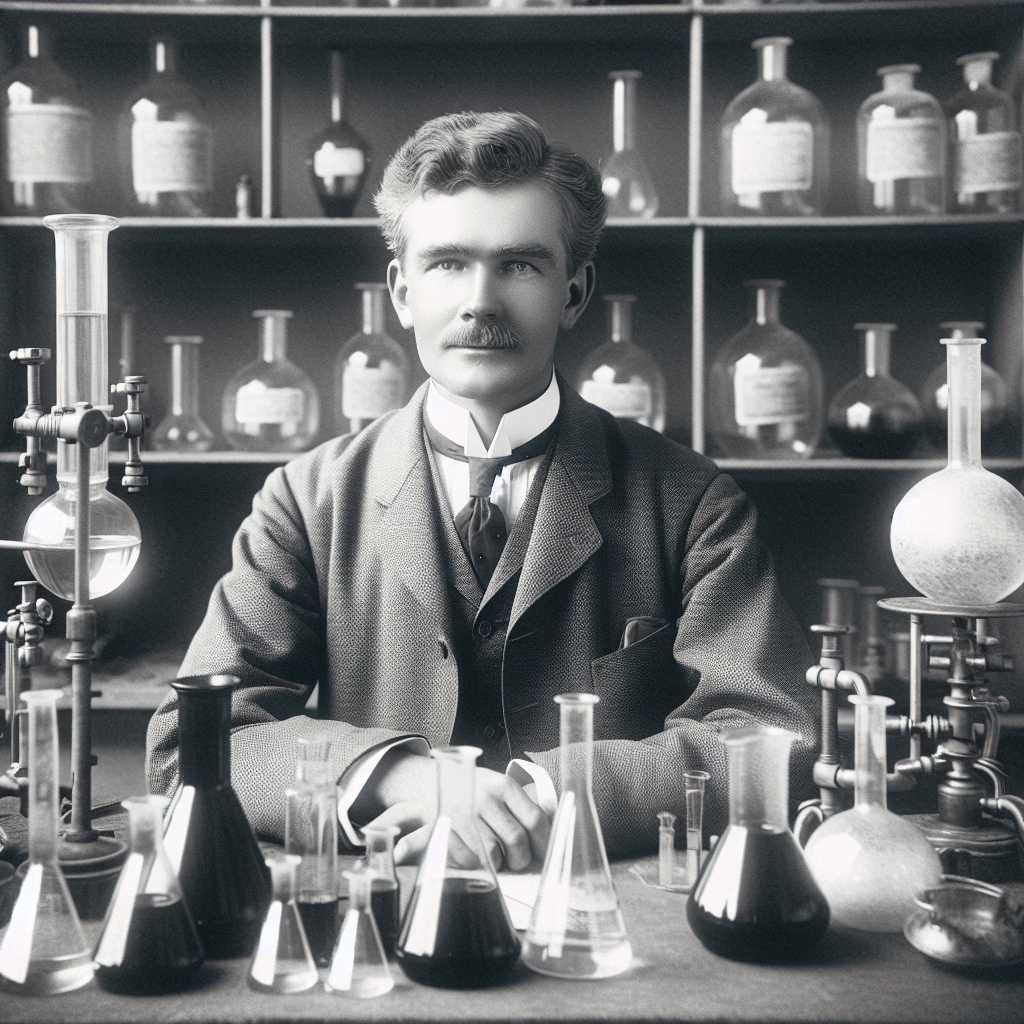Exploring the Legacy of Casimir Funk: The Forgotten Pioneer of Vitamin Therapy
The Man Who Named Vitamins: Casimir Funk’s Pioneering Work
Casimir Funk is a name that often tickles the curiosity due to its association with one of the most groundbreaking discoveries in the realm of nutrition – vitamins. Born Kazimierz Funk on February 23, 1884, in Warsaw, then part of Russia (now Poland), he was destined to leave an indelible mark on the scientific world. Trained as a biochemist and initially interested in chemistry and serology, Funk’s explorations soon took him deep into the field of nutritional science. His scientific journey shed light on illness prevention and the necessary components of food critical for maintaining health, years before the complexities of these substances were fully unraveled.
A Discovery That Changed Health Science Forever
Casimir Funk is historically accredited with coining the term “vitamins” in 1912. This epoch-making event resulted from his research on beriberi, a disease that was common amongst populations whose diet consisted mainly of polished rice. Funk hypothesized that such diseases were caused by a deficiency of certain vital nutrients in one’s diet.
Escorting in a new era of nutritional research, he isolated an antiberiberi substance from rice bran – now known to be vitamin B1 (thiamine). While his initial theory posited the existence of four vital amines required for health (hence “vitamins”), subsequent research would reveal many more essential nutrients and that not all fit into the original ‘amine’ category.
Vitamin Theory and Its Widespread Impact on Public Health
Funk’s vitamin theory emphatically altered public health and medical practice. It shifted perspectives from treating symptoms of diseases to focusing on dietary prevention methods. With the newfound knowledge that certain foods contained essential nutrients for preventing diseases such as scurvy, rickets, pellagra, and beriberi, public health measures started incorporating dietary recommendations and fortification programs.
Funk’s discovery gave impetus to extensive studies into various vitamins and their role in keeping the human body healthy. It opened gateways for doctors to treat patients by remedying vitamin deficiencies and changed the agricultural industry’s approach to focus more attention on nutrient preservation during food processing.
Casimir Funk’s Later Research and Contributions
Beyond his vitamin research, Funk continued to work prolifically, delving into hormonal studies and furthering understanding of amino acids and peptides. His later years saw questions regarding some conclusions he drew early on; for example, later scholars debated whether he had indeed isolated thiamine in its purest form. Nonetheless, his driven pursuit of nutritional knowledge undeniably shaped much of what we understand today about diet and health.
Funk’s publications included “The Vitamines” in 1912 among several others that addressed varying aspects of nutrition science. Although residing away from the spotlight that tends to shine on Nobel laureates or similar honorees, Funk’s work encapsulates an enduring legacy where science meets daily life – at every meal, in fact.
Challenges and Recognition
Not unlike many pioneers, Casimir Funk faced skepticism from some areas of the scientific community concerning his theories. The idea that minute amounts of substances could prevent diseases common at Turn-of-the-century was revolutionary, if not heretical to established medical practice based solely on bacteria-driven pathology and chemotherapeutic treatments for symptoms.
Despite initial resistance, the validity of his findings became increasingly accepted and integrated into both clinical practices and dietary regulations across nations.
Casimir Funk received varied recognitions during and post his lifetime. His contributions are remembered through awards like the Casimir Funk Natural Sciences Award, which celebrates those significantly contributing to the nutritional sciences, embodying Funk’s innovative spirit.
Notes
Image Description: A vintage black-and-white photo of Casimir Funk could depict the pioneering biochemist immersed in laboratory work amidst beakers and flasks or posing formally for a portrait reflecting characteristic attire and styles of the early 20th century intellects.
